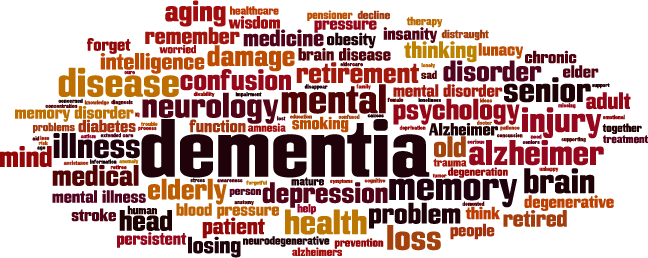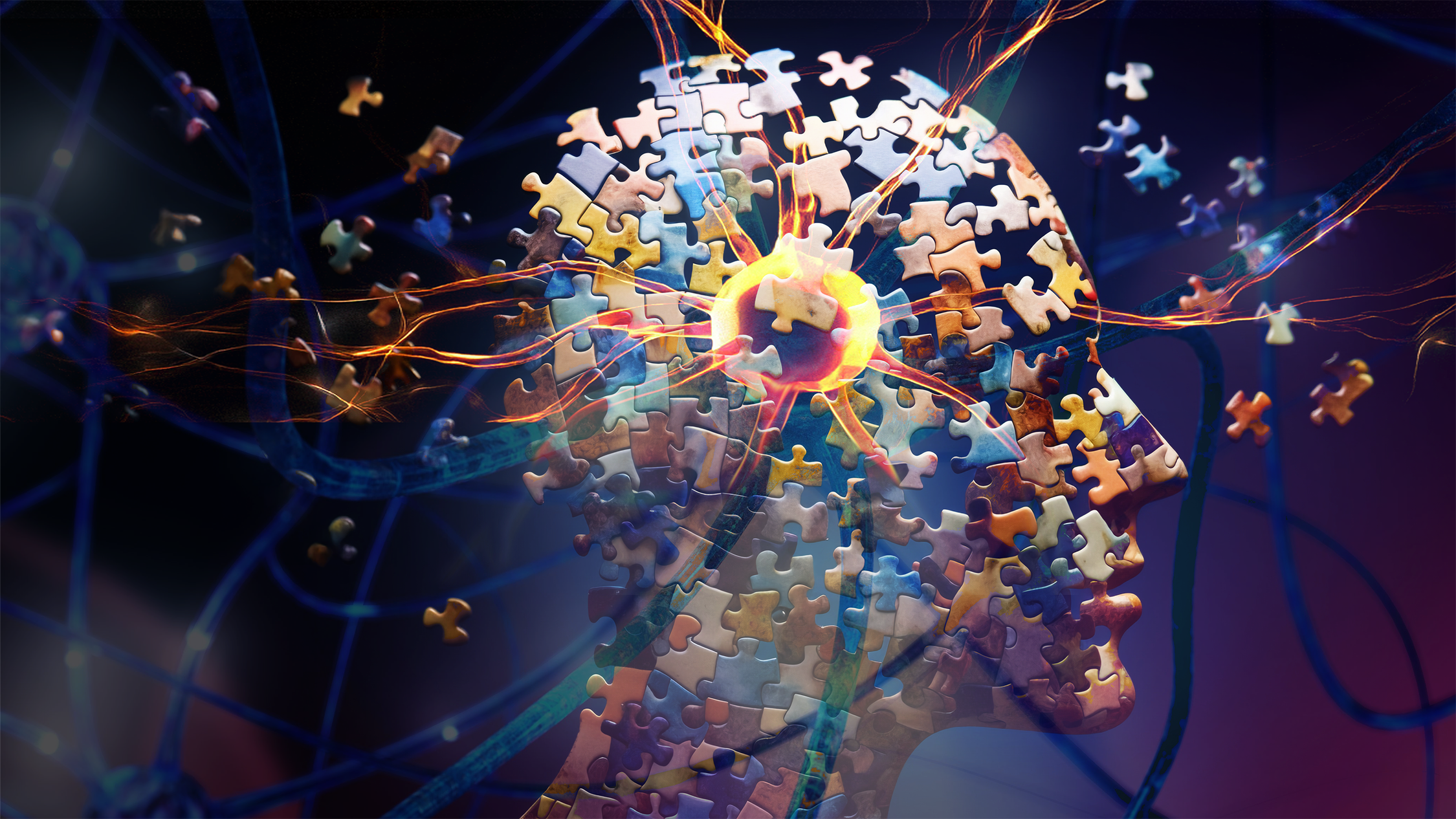The Darkness Pursues: My Imaginary Journey Through the Stages of Dementia
Afflicted… Imagine that all of your memories — the very threads that weave the fabric of who you are — pulled at unraveling, one by one, until the pattern exists solely in the memories of others. That’s how it began, this insidious thief called dementia, robbing me in minuscule hardly notable increments. I write this now, struggling to piece together the fragments of me. Reading from old journals, grasping at conversations with loved ones, waiting on those fleeting moments of clarity that still visit like old friends. This is not just a medical progression; it’s a personal odyssey, my last bike ride through uncharted territories where the landscape of my mind shifts with every turn. Much like pedaling an old bicycle up a steep hill — the effort immense, the view obscured by my own sweat, the darkness of night fast approaching — unable to out pace the encroaching black, this journey demands a different kind of resilience, pushing through a different type pain. I struggle to maintain my balance, things once innate now need constant relearning or are becoming completely foreign.
Dementia doesn’t announce itself with any fanfare or begin a set age. It creeps in, subtle at first, whispering doubts into your ear. They say there are seven stages, based on that Reisberg scale doctors use, but from where I sit — or rather, from where I’ve rode off course — it’s less a paved road and more a overgrown mountain trail, full of pitfalls and unexpected detours. I’ll take you through them as I’ve lived them, not as some clinical checklist, but as the raw, emotional unraveling of a life once sharp and independent. Defining memories of freedom, adventure, and life’s milestones? They’re the first to slip away, leaving me to chase shadows in the dark. Exposing my mind and body’s failings, I hope to build awareness, to urge you to advocate for research and understanding. If this story can provide some insight to those on the outside, who are riding in the light of life with balance of mind, then perhaps my ride into the scary darkness isn’t entirely in vain.
Stage 1: No Impairment — Clouds or is the Sun Setting on the Road Ahead
In the beginning, there was nothing — or so it seemed. Stage one, they call it no impairment, a baseline where the brain hums along without a hitch. Looking back, I realize this was my “normal,” the foundation I’d taken for granted all my life. At fifty, active, with a mind as reliable and predictable as my new bicycle on a smooth road. I’d perform my job, solve problems, repair anything effortlessly, dive into unknown experiences or learn new skills with enthusiasm. All with the same vigor I’d felt as a young man, always growing stronger, constantly pedaling ahead.
But even then, in this supposed stage of personal best, I now wonder if the seeds were already sown. Genetics, perhaps, or those quiet accumulations of plaques science talks about — invisible invaders clinging silently to the walls of vessels in my brain. I didn’t notice a thing. Mornings had promise, purpose; I’d wake, take in a healthy smoothie, and map out my day with precision. Exceptions or interruptions of my plans were always easily accommodated. Conversations flowed, laced with anecdotes from decades past: that epic bike ride with my childhood friends, that sense of unbridled freedom. Memory was my footing, defining me cementing my place in the bigger purpose. Years of accumulated knowledge, logic and empathy learned by experience — built me and kept me able.
If I could speak to my past self, I’d say cherish it while you can — this unblemished clarity. It’s this stage where prevention whispers possibilities: exercise, healthy eating, mental stimulation. For most it’s also a stage that occurs during middle age. That time of life, having a bit less youthful invincibility, but still emboldened by that trickery of mind that allows for one to become hubristic with their accumulated worldliness and perceived enlightenment. The list of adult denials; not me, I’ll worry about it later, I’ve too much responsibility, being way too smart to preserve oneself. But I didn’t know then what I know now. The darkness was distant, a mere date on the calendar so distant — it’s akin to y2k. Little did I realize, that my undoing was already underway, silent and stealthy.

Stage 2: Very Mild Cognitive Decline — The First Signs
Then came the every now so often shimmy, subtle, hard to put a finger on, maybe like a loose spoke on a wheel, an intermittent feeling easily ignored. Stage two: very mild decline, where forgetfulness creeps in like an uninvited guest. I’d misplace things more often, or walk into a room and forget for what. “Senior moments,” I’d laugh it off, blaming age, stress or others for their distracting behavior. But deep down, a the unease stirred — was this normal?
Names started slipping. Uncertain, I’d hesitate to address acquaintances by name, faces became harder to place. I’d repeat a story, only to see polite smiles masking the “you told us that already” glances. It felt like pedaling uphill with a slight headwind — manageable, but requiring extra effort. My independence intact; I still worked, managed finances, pursued hobbies. Yet, those cherished memories began to haze. The details of adventures past, racing bikes, storied pranks unforgettable firsts? They softened, like an aging Polaroid, some spots more vivid others the emulsion was cracking and flaking away.
Internally, this stage was a mix of denial and unspoken fears. I’d compensate by using specific routines (those who noticed, just saw it as my OCD behavior), setting reminders on my phone — any trick to paper over the cracks. Those close to me noticed but said little; happily engaging and accepting my excuses — perhaps not wanting to raise my increasingly often snaps of ire. Still, having seen this play out slowly before with family members, I let my pride keep me from acknowledging my presentiment. Maybe, being honest at check-ups, divulging my symptoms, sharing my suspicions with family. It’s said that early intervention here can slow the progression, stoically I pedaled on, denying the rapidly advancing night, just like a child playing the yard, its mother beckoning.

Stage 3: Mild Cognitive Decline — The Chain Skips
By stage three, the slips became noticeable, not just to me but to everyone around, from those close to total strangers. Mild cognitive decline — that’s the label, the struggle it brought was akin to increasing one’s pedaling effort, only to have the chain skip even more, just losing momentum. Friends and family started commenting: “Are you alright? You seem a bit off today.” I’d forget birthdays, appointments, argue over the day of the week, or struggle with words during conversations. At the store, unable to use the self-checkout, needing assistance — then fumbling as to which of the handful of cards in my wallet was a credit card (drivers licenses are not an accepted form of payment).
Lapses deepened. My personal history fading; I’d confuse dates, mix up events. That first car purchase was it a 74′? Or was it a ‘75? The frustration mounted, a simmering anger at my own mind’s betrayal. Everyday brought anxiety — what would I forget? I’d withdraw socially, embarrassed by the lapses, fearing judgment, but indignant when offered help by others. Still, glimmers of my old self persisted: I’d escape by riding my bike, the rhythm of the pedals providing a temporary anchor to clarity.
From this vantage, the emotional toll hit hard. Depression crept in. Self isolating, I’d invent excuses, hiding from the growing fog. Caregivers — my wife, mostly — began stepping in subtly, reminding me of bills or medications. If I could turn and ride back in time, getting diagnosed here, receiving earlier treatment may have left more of me longer. Awareness is key, with aging we need to be aware of the changes that come with the phases of dementia and prepared with the tools to approach and aide it’s victims. Dementia isn’t just forgetting — it’s losing pieces of your identity. Please advocate for early detection, preserve a life, give families more time with their loved ones while they are still whole.
Stage 4: Moderate Cognitive Decline — The Steep Climb
Stage four marked a cat4 climb and in no way was I able to hang. Called moderate decline — where independence is first lost. Daily tasks turned treacherous: managing money became a puzzle, leaving bills unpaid, checks signed but not deposited. I’d forget to turn off the water, TV remotes wound up in the freezer — shorts in winter, a sweater in summer’s heat.
Conversations grew strained. I’d lose my train of thought mid-sentence, or repeat questions endlessly. “What time is dinner?” I’d ask, then forget that we hadn’t eaten. Personal hygiene slipped; showers and shaving, forgotten until prompted. The world outside felt overwhelming — my wife slowly took over driving us places after my near-miss in the food store parking lot. I always drove us everywhere, oft taking her to meetings or shopping and waiting for her in the car, I felt it was my way of caring and watching out for her, so lost am I now that I didn’t even put up a fight to the change, she confined me to passenger status and I can’t say that I even noticed. That loss of freedom should have been upsetting — it wasn’t, the remains echos of bicycle rides of my youth now relegated to dusty fragmented but still cherished memories.
Emotionally, paranoia emerged. I’d accuse loved ones of hiding things — my wallet, my keys — when really, I’d misplaced them. Irritability flared; small frustrations exploded. Yet, in quieter moments, sadness washed over me. Who was I without my sharp mind? My wife bore the brunt, her patience a lifeline. This stage demanded advocacy — for respite care, for understanding the caregiver’s burden. Research into therapies like cognitive training could help, but we navigated blindly at first. The medical profession pushing drug therapies — their goal not so much to stop the progression of this mind eating disease, but to sedate me and make me more compliant, with the goal of helping my wife better manage me in her life. If I could have comprehended their goals I might not have resisted so. The last thing I ever expected to be was burden to anyone, let alone my wife. This was the failure that after a lifetime of protecting and providing really ended me. The fog thickened, but I clung to remnants of self, truly unable capture what remained.

Stage 5: Moderately Severe Cognitive Decline — The Clinging Shadows
Here, in stage five, the shadows enveloped me — moderately severe decline, where help became essential for survival. Dressing? A daily battle; I’d fight help, refuse to change clothes or soiled underwear. Bathing a worry and a battle for everyone. Eating patterns erratic — I’d skip meals, unaware of hunger.
Recent events vanished; I’d not recognize my family, curiously though, hearing their voices from another room or over the phone I could place them — but when seeing them in person I was confused. The people I saw were far too old, my visual memory was stuck in my past, I couldn’t place myself in current time or even recognize my age. When quizzed about normal things I’d invent stories to fill gaps — confabulation, they call it — weaving tales to mask the voids. Funny thing, some of this conjectured rambling seemed salient, my history of being that “guy” lent my garbled thoughts credibility. I’d say, something believing it true, able to fool some but, all the while those closest to me exchanged worried glances.
The emotional landscape: my profound dependence bred fear and clinginess. I’d follow my wife everywhere, terrified of separation and inadvertently stealing her life too. My small paranoias and suspicions grew large. Checking and rechecking door locks, lights etc… The worrying over things seen outside through the windows, stalking the postman for fear of mail theft, questioning the good will of visiting neighbors — living in my own maze of unvalidated fears, this should have been paralyzing, but instead it was just exhausting. Sleep fractured, physical and mental fatigue compounded. Nighttime brought sundowning — as darkness fell, my confusion compounded.
Throughout all of this there were still good moments where flashes of joy and clear memories persisted: a familiar scent triggering a clear memory, motor oil in the garage brought the repair of bicycle chains from boyhood. This stage screamed for full-time care, but fear of others not understanding or being unable to show compassion kept my wife trapped, she kept wanting to provide my care even as she was struggling herself, maybe we should have had kids or maybe not. Advocate for educating family / caregivers and funding support services; without them, this disease devours not only its victims but those who selflessly love them. Dementia strips dignity and steals time, but with proper care and resources its impact on everyone can be lessened.
Stage 6: Severe Cognitive Decline — The Descent Into the Valley
In stage six the descent into darkness steepened: severe decline, where the fog filled valley of loss stretched vast. Basic functions faltered — incontinence set in, requiring diapers and endless patience. Speech muddled; words jumbled or lost, frustration boiling into outbursts. I’d lash out physically, not from malice, but from a primal confusion I couldn’t articulate.
Personality warped: No more story telling no regaling in memories of the past, I withdrew into apathy, or swung to euphoria over nothing. Hallucinations visited — shadows of past riders on ghost bikes, whispering forgotten names. Swallowing grew hazardous; meals pureed to prevent choking. Mobility waned; I’d need help walking, then a wheelchair, my legs betraying me, putting me back on two wheels. Only now my two wheels were sans pedals — oh the irony, as any two wheeled transit had always signified independence to me. Now two wheels were akin to an anchor. Constantly agitated, fighting anyone who tried to help, calmed and comforted only by my wife’s voice — but even she was becoming lost to me. A lifetime of her dedication, love and effort seemingly gone in a blink, though there was still an undeniable connection between us the “we” were was gone, that realities toll falling hard on her. Her patience, once only tested by my condition became mostly lost. In private she vacillated between tears and anger, the worst part of this was my understanding of her may not have been expressed visibly, but the pain I couldn’t define was strongly felt. On some level I was suffering my greatest failure and the torment of hurting the one I loved most was palpable, even through the dense fog that enveloped my now failing body and mind.
From within this chaos: a profound disconnection. The “I” faded; mirrors showed strangers. Emotions raw — tears without cause, laughter at oddities. Human touch, though now rarity was a comfort amid the void. Friend visits or an occasional outing stirred vague warmth, but recognition flickered. This stage is the heartbreaker; end-of-life planning loomed. My wife’s research into music therapy and her keeping of my memorabilia close helped — old tunes evoking smiles, bridging gaps. By surrounding me with familiar sounds and belongings from my lost past, she provided comfort. Perhaps her most calming and loving decision was to keep me in my home, the warm cradle of those well known but forgotten surroundings stilled me. Please, advocate for better palliative care; in this final valley, ther will be no pedaling or riding out — humanity is all that remains.
Stage 7: Very Severe Cognitive Decline — The Final Horizon
Finally, stage seven: “I” am no more, the uncontrolled descent, words fail and the body surrenders. Vegetative, lying in my death bed — contractures twisting my limbs unnaturally. Unable to comprehend my dependance upon my caretakers, I am silent, except for mere groans or gurgles. My once resilient body is now easily infiltrated with infections — minor infections that it had historically easily fought off now threatened my every breath.
Awareness? A dim spark, perhaps. Pain registers vaguely; comfort comes in gentle care, soft voices, familiar scents. Memories? Erased, save for instinctual responses — a squeeze of hand, eyes tracking light. The end approaches, merciful in its quietude.
Reflecting — if reflection is possible here — this journey mirrors a long ride’s end: exhaustion, but peace in completion. Dementia has taken much, but not the love surrounding me. To you, the reader: Cherish your memories, advocate fiercely for research, support caregivers. My story, like a bicycle left by the wayside, serves as a reminder — life’s freedoms are precious, fragile. In honoring them, we fight the fog for all.
It’s hard to fathom, what started with those first few forgotten thoughts, escalated to this. My brain in its failing me, had also slowly and methodically ended me. No longer am I trapped by this affliction, in its wiping clean any semblance of my being, it has freed me. My heart continues its beating, sadly my years of physical conditioning — all of that cardio benefit from cycling — keeps me here past my expiration date. Grieving onlookers attempt to reconcile how this empty vessel, once so vibrant, strong a model of health could have succumb so quickly to a disease that seems to take life outside our accepted norms. No heart disease or cancer, no tragic accident — just the robbing of one’s intellect. The stigma of becoming mentally incompetent often is built from long standing societal views that mental illness (or any failing of cognition) is a failure that the victim could possibly control. Please, inspire action and then ride to remember.








